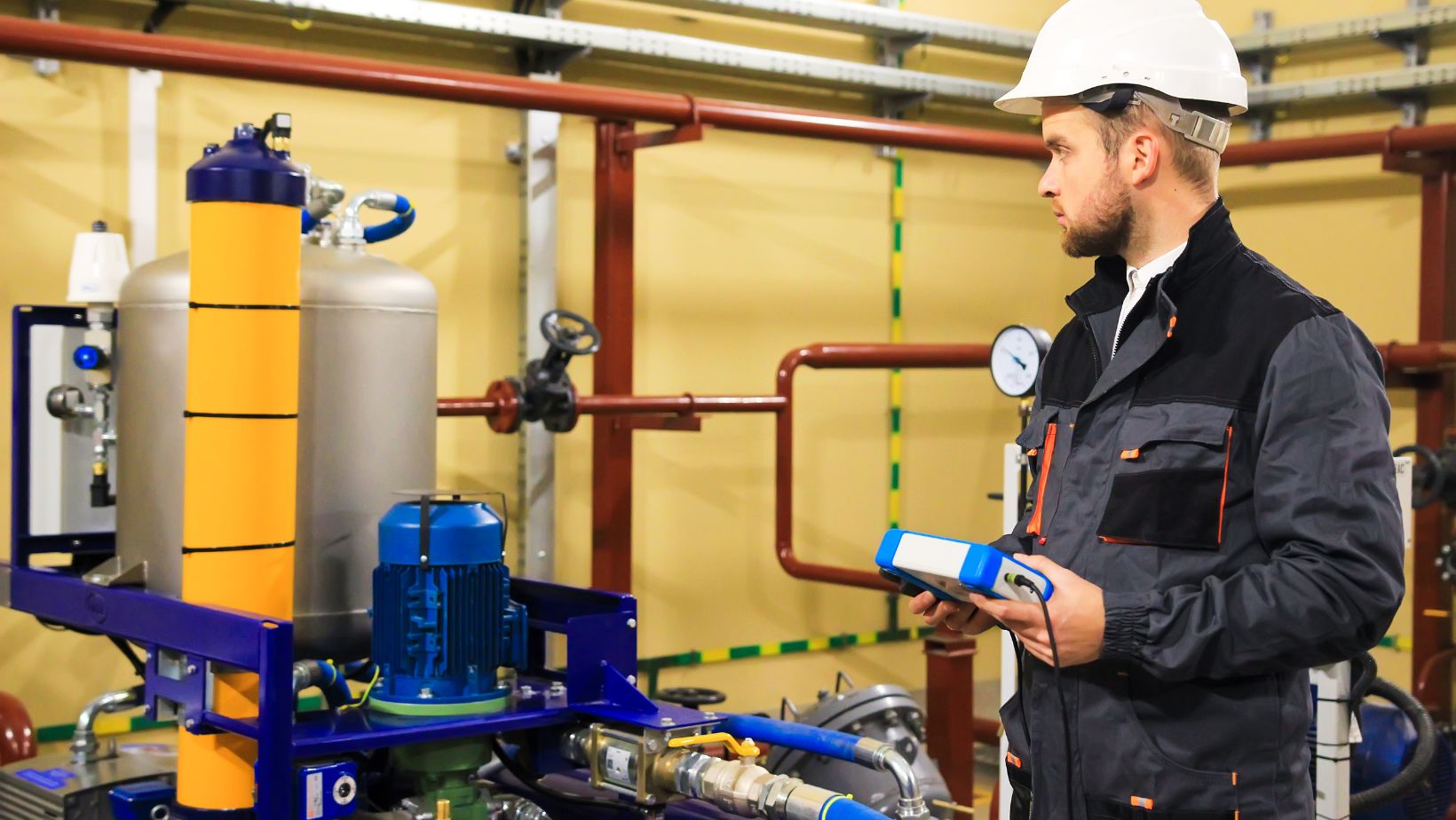Key Takeaways
- Definition and Scope: Mechanical engineering involves the design, analysis, and maintenance of machines and systems, encompassing key subfields like robotics, thermodynamics, and fluid mechanics.
- Importance: This discipline is crucial for technological advancements, driving improvements in transportation, energy systems, and medical devices, while enhancing safety, efficiency, and sustainability.
- Core Principles: Key principles include mechanics (forces and motion), thermodynamics (energy transfer), and materials science (properties of materials), which are essential for effective engineering solutions.
- Key Areas of Study: Focus areas such as dynamics, fluid mechanics, and structural analysis equip engineers with the skills to solve complex mechanical challenges and drive innovation.
- Tools and Technology: Advanced tools like CAD software and simulation techniques (FEA and CFD) are essential for designing, analyzing, and testing mechanical systems efficiently before production.
- Career Opportunities: A variety of career paths exist within mechanical engineering, including roles like design engineer, manufacturing engineer, and robotics engineer, appealing to those with strong analytical and technical skills.
Mechanical engineering stands at the forefront of innovation and design, shaping the world through the development of machines, systems, and processes. From the vehicles we drive to the appliances in our homes, the impact of mechanical engineering is everywhere. This dynamic field combines principles of physics, mathematics, and materials science to solve real-world problems and improve everyday life.
As technology continues to evolve, the demand for skilled mechanical engineers grows. They play a crucial role in industries ranging from aerospace to robotics, ensuring that products are not only functional but also efficient and sustainable. Understanding the basics of mechanical engineering opens doors to a world of possibilities, making it an essential area of study for aspiring engineers and curious minds alike.
Mechanical Engineering 101
Mechanical engineering focuses on designing, analyzing, and manufacturing machines and systems. This discipline combines principles from physics, mathematics, and materials science to solve complex problems.
Definition And Scope
Mechanical engineering encompasses the design, analysis, manufacturing, and maintenance of mechanical systems. It includes various subfields such as robotics, thermodynamics, fluid mechanics, and structural analysis. Professionals design everything from automotive engines to HVAC systems, ensuring functionality and efficiency. Understanding the cross-disciplinary nature of mechanical engineering is crucial for those entering the field.
Importance Of Mechanical Engineering
Mechanical engineering plays a vital role in technological advancement and innovation. It drives the development of essential systems and products that improve daily life, including transportation, energy systems, and medical devices. The expertise of mechanical engineers contributes to enhancing safety, efficiency, and sustainability in various industries. As technological challenges evolve, the demand for skilled mechanical engineers continues to grow, underpinning the importance of this discipline in shaping the future.
Core Principles Of Mechanical Engineering

Mechanical engineering revolves around several core principles that guide the design, analysis, and manufacturing of mechanical systems. This discipline relies on fundamental concepts from various scientific fields, ensuring effective solutions to complex challenges.
Mechanics
Mechanics examines the behavior of physical bodies under forces and motions. It encompasses two main branches: statics, which studies bodies at rest, and dynamics, which focuses on bodies in motion. Key topics include force analysis, equilibrium, and kinematics. Mechanical engineers apply these principles to design structures and machines that withstand applied loads while maintaining stability and functionality. An understanding of mechanics is essential for creating vehicles, machinery, and infrastructure.
Thermodynamics
Thermodynamics explores energy transfer and conversion among systems. It includes the laws of thermodynamics, which describe energy conservation, heat transfer, and system behavior. Mechanical engineers utilize thermodynamic principles to analyze engines, HVAC systems, and refrigeration processes. Applications range from optimizing energy efficiency in power plants to improving thermal management in electronic devices. Effective thermodynamic analysis enhances overall system performance and sustainability.
Materials Science
Materials science investigates the properties and applications of various materials. It involves understanding the relationships between material structure, properties, and performance. Mechanical engineers select appropriate materials based on durability, strength, and temperature resistance for specific applications. Knowledge in materials science ensures optimal design choices for components in automotive, aerospace, and biomedical fields. This expertise is crucial for developing innovative products and enhancing the reliability of engineered systems.
Key Areas Of Study
Mechanical engineering encompasses several key areas of study that equip professionals with the knowledge to solve complex problems and innovate within the field. The primary areas of focus include dynamics, fluid mechanics, and structural analysis.
Dynamics
Dynamics involves the study of forces and motion affecting objects. This area explores how forces interact and the resulting movement of mechanical systems. Key concepts include:
- Kinematics: Analyzes motion without considering the forces involved, focusing on displacement, velocity, and acceleration.
- Kinetics: Studies the forces acting on moving bodies, emphasizing the relationship between motion and force.
- Vibration Analysis: Examines oscillations in mechanical systems, critical for ensuring stability and minimizing noise and damage.
Fluid Mechanics
Fluid mechanics investigates the behavior of fluids (liquids and gases) in motion and at rest. This area is vital for numerous applications, such as:
- Hydrodynamics: Studies fluid flow, including principles governing forces in moving fluids, essential for designing pumps and turbines.
- Aerodynamics: Focuses on the behavior of air around objects, impacting vehicle design and efficiency, particularly in aerospace engineering.
- Fluid Statics: Examines fluids at rest, addressing pressure and buoyancy, which guide the design of tanks, dams, and piping systems.
- Load Calculations: Determines the forces acting on structures to ensure appropriate material selection and construction methods.
- Stress and Strain Analysis: Evaluates the deformation of materials when subjected to forces, ensuring that structures can withstand operational stresses.
- Finite Element Analysis (FEA): Utilizes computational methods to simulate and predict how structures behave under various conditions, aiding in design optimization.
Tools And Technology
Mechanical engineering employs advanced tools and technologies to design, analyze, and test systems and components effectively. These tools facilitate precision, innovation, and efficiency throughout the engineering process.
CAD Software
CAD (Computer-Aided Design) software plays a crucial role in mechanical engineering. It allows engineers to create detailed 2D drawings and 3D models of components and systems. Popular CAD applications include AutoCAD, SolidWorks, and CATIA. These tools enable designers to visualize products before manufacturing, ensuring accurate specifications. CAD software enhances collaboration by allowing multiple users to work on the same project, streamlining design iterations and revisions.
Simulation Tools
Simulation tools provide mechanical engineers with the ability to test and validate designs under various conditions without the need for physical prototypes. Finite Element Analysis (FEA) and Computational Fluid Dynamics (CFD) are two common simulation techniques. FEA helps analyze stress and strain on components, while CFD evaluates fluid flow and heat transfer. Software like ANSYS and COMSOL Multiphysics offers capabilities for these simulations. By utilizing simulation tools, engineers can identify potential issues early in the design process, optimizing both performance and safety.
Career Pathways In Mechanical Engineering

The field of mechanical engineering offers diverse career paths across various industries, allowing professionals to utilize their skills in innovative and practical ways. From research and development to manufacturing and design, numerous opportunities exist.
Job Opportunities
- Design Engineer: Responsible for creating and testing product designs, design engineers employ CAD software to develop detailed specifications.
- Manufacturing Engineer: Focused on optimizing production processes, manufacturing engineers implement efficient manufacturing techniques and oversee assembly line operations.
- Aerospace Engineer: Specializing in the development of aircraft and spacecraft, aerospace engineers ensure designs meet safety and performance standards.
- Automotive Engineer: Involved in designing vehicles and their systems, automotive engineers improve performance, fuel efficiency, and safety features.
- Energy Engineer: Working on energy efficiency projects, energy engineers develop sustainable solutions and implement renewable energy technologies.
- Robotics Engineer: Concentrating on the design and development of robotic systems, robotics engineers create automated solutions for various applications.
- Thermal Engineer: Focused on heat transfer and thermodynamics, thermal engineers design systems that manage heat in mechanical systems, such as HVAC systems.
- Analytical Skills: Mechanical engineers must possess strong analytical skills to assess problems and develop effective solutions.
- Technical Proficiency: Proficiency in CAD software and simulation tools enhances design accuracy, making technical skills essential.
- Mathematical Abilities: Solid mathematical knowledge underpins engineering principles, crucial for performing calculations and modeling systems.
- Communication Skills: Effective communication enables engineers to collaborate with team members and present ideas clearly to stakeholders.
- Problem-Solving Skills: Strong problem-solving skills allow engineers to identify issues and devise innovative solutions efficiently.
- Attention to Detail: Precision in measuring and design ensures the reliability and functionality of mechanical systems.
- Project Management: Understanding project management methodologies aids engineers in overseeing projects efficiently from inception to completion.
Fundamentals of Engineering
Mechanical engineering stands at the forefront of innovation shaping modern life. Its principles and practices not only address complex challenges but also drive advancements across various industries. As technology evolves the significance of skilled mechanical engineers continues to grow. Their expertise is vital for developing efficient and sustainable solutions that enhance safety and performance.
With diverse career pathways available aspiring engineers can find fulfilling roles that align with their interests and skills. The future of mechanical engineering promises exciting opportunities for those ready to embrace the challenges ahead. By understanding the core concepts and tools of this discipline individuals can contribute meaningfully to a world where technology and engineering play a crucial role in everyday life.

